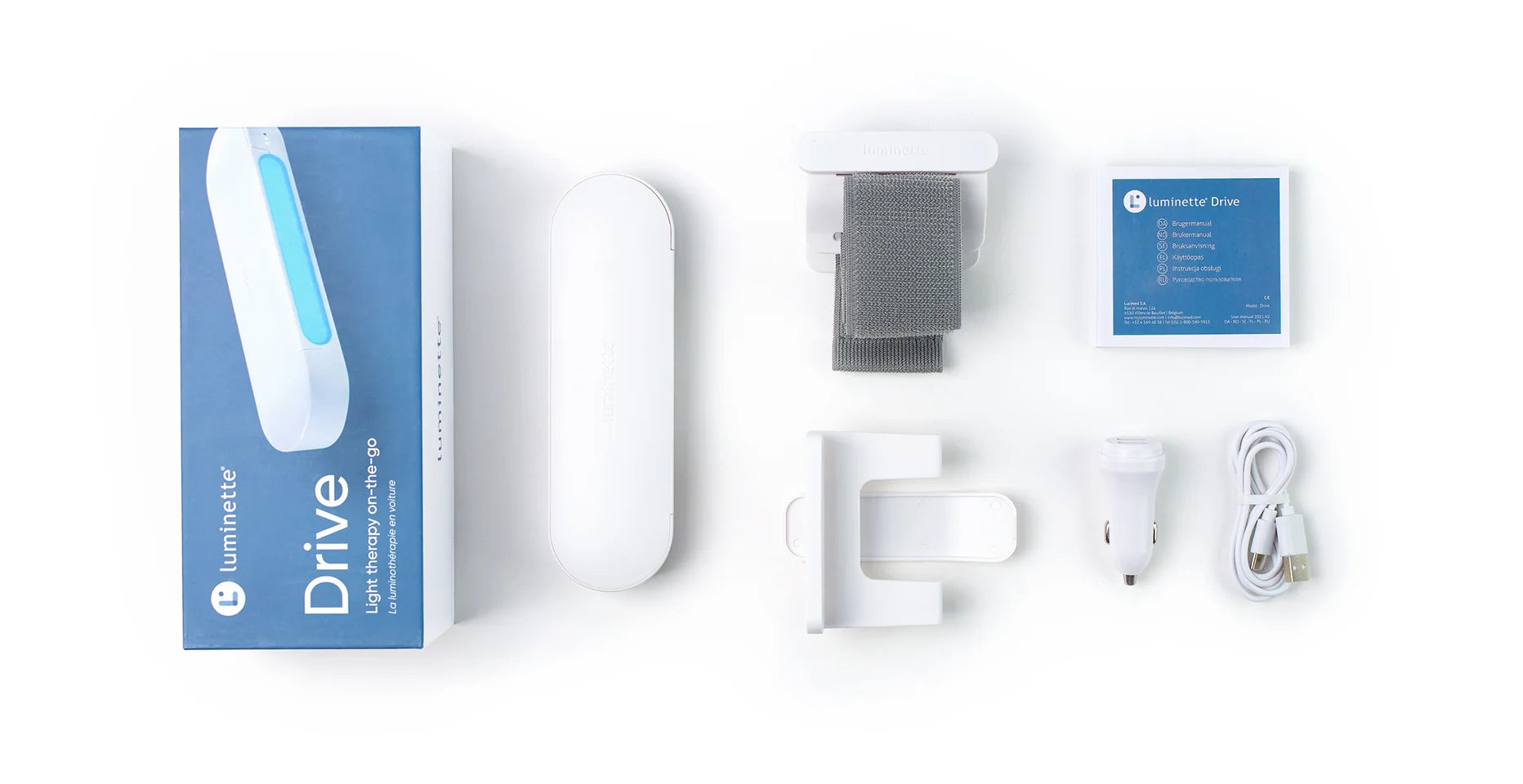Getting enough sleep is crucial for both physical and mental health. Unfortunately, many people struggle with falling asleep or staying asleep through the night. That's where books can come in handy. Reading before bed has been shown to help calm the mind and prepare the body for sleep. In fact, according to a 2009 study published in the journal Sleep, just six minutes of reading can reduce stress levels by up to 68%. But what are the best books to read before bed for better sleep? In this article, we'll explore a range of options from fiction to nonfiction, mindfulness to self-help, and children's books to adult reads, all with the aim of helping you improve your sleep habits and get a better night's rest.
How Reading Helps Sleep
Sleep is a complex physiological process that is essential for physical and mental restoration. During sleep, our bodies go through various stages, including REM (rapid eye movement) and non-REM sleep. Each stage plays a critical role in restoring and repairing different bodily functions. The benefits of sleep are numerous, including improved cognitive function, mood regulation, and immune system function. Reading before bed has been shown to help improve sleep quality by reducing stress and anxiety levels. It can also help regulate the body's circadian rhythms, which are essential for falling asleep and waking up at the right times. Additionally, reading helps to distract the mind from negative thoughts or worries that can keep us up at night, making it easier to drift off into a restful sleep.
Importance of Reading for Better Sleep
According to the National Sleep Foundation, reading before bed can help promote relaxation and improve overall sleep quality. By engaging in a quiet, calming activity like reading, it allows our bodies and minds to wind down from the stressors of the day. Additionally, reading has been shown to decrease heart rate and reduce muscle tension, making it an ideal pre-sleep activity.
Calming Your Mind
Reading before bed can significantly calm your mind. Unlike screens that emit blue light, which can interfere with melatonin production, a book provides a form of mental escapism without overstimulation. A well-chosen book can transport you to another world, helping to divert your thoughts from the stresses of the day.
Reducing Stress Levels
Reading can reduce stress levels by as much as 68%, according to a study by the University of Sussex. For office workers, corporate professionals, and students, this reduction in stress can be particularly beneficial. With lower stress levels, your body can more easily transition into sleep mode, leading to a more restful night.
Creating a Consistent Routine
Creating a nightly habit of reading can signal to your body that it’s time to wind down, making it easier to fall asleep. For stress management seekers and health and wellness enthusiasts, establishing such a routine can improve sleep quality over time. Consistency is key to training your body to recognize when it’s time to sleep.
Fiction books can be a great way to unwind and relax before bed. They offer a form of escapism from our daily lives and can help transport us to other worlds and experiences. The key to choosing a good fiction book for better sleep is to find one that isn't too stimulating or emotionally charged. Thrillers, horror stories, or intense dramas may not be the best choices, as they can be too stimulating and keep us awake. Instead, opt for books with soothing or calming storylines, such as romance novels, gentle mysteries, or heartwarming tales. Books with positive endings and feel-good themes can also help improve mood and promote relaxation, making them perfect for bedtime reading. Additionally, reading fiction can help improve empathy and emotional intelligence, which can lead to better relationships and overall well-being.
"Sleep Smarter: 21 Essential Strategies to Sleep Your Way to a Better Body, Better Health, and Bigger Success" by Shawn Stevenson - This nonfiction book offers practical tips and strategies for improving sleep quality, including advice on nutrition, exercise, and bedtime routines.
"The Promise of Sleep: A Pioneer in Sleep Medicine Explores the Vital Connection Between Health, Happiness, and a Good Night's Sleep" by William C. Dement - This nonfiction book explores the science of sleep and provides insights into the many benefits of getting enough rest. It also discusses common sleep disorders and their treatment.
"Say Good Night to Insomnia: The Six-Week, Drug-Free Program Developed At Harvard Medical School" by Gregg D. Jacobs - This self-help book provides a six-week program for overcoming insomnia without the use of medication. It includes techniques for improving sleep habits and reducing anxiety.
"The Happy Sleeper: The Science-Backed Guide to Helping Your Baby Get a Good Night's Sleep - Newborn to School Age" by Heather Turgeon and Julie Wright - This parenting book provides guidance on how to establish healthy sleep habits for infants and children. It includes advice on creating a soothing bedtime routine and dealing with common sleep issues.
"Solve Your Child's Sleep Problems: New, Revised, and Expanded Edition" by Richard Ferber - This parenting book provides advice on how to help children of all ages establish healthy sleep habits. It includes techniques for dealing with common sleep issues, such as night waking and difficulty falling asleep.
"The Nocturnal Journal: A Late-Night Exploration of What's Really on Your Mind" by Lee Crutchley - This guided journal provides prompts for reflecting on thoughts and emotions before bedtime. It's designed to promote relaxation and mindfulness.
"The Family That Couldn't Sleep: A Medical Mystery" by D.T. Max - This nonfiction book tells the story of a family affected by a rare genetic disease that causes insomnia. It explores the science of sleep and the ways in which sleep disorders can impact individuals and families.
"The Sleep Solution: Why Your Sleep is Broken and How to Fix It" by W. Chris Winter - This nonfiction book offers practical advice and tips for improving sleep quality, including guidance on sleep hygiene, sleep disorders, and the use of technology.
"The Sleep Revolution: Transforming Your Life, One Night at a Time" by Arianna Huffington - This nonfiction book examines the importance of sleep and the ways in which our culture undervalues it. It provides insights into the benefits of getting enough rest and offers practical tips for improving sleep quality.
"Snooze: The Lost Art of Sleep" by Michael McGirr - This nonfiction book explores the history and science of sleep, as well as the cultural and personal significance of sleep. It includes reflections on the role of sleep in our lives.
"Dangerously Sleepy: Overworked Americans and the Cult of Sleep Deprivation" by Alan Derickson - This nonfiction book examines the ways in which sleep deprivation has become a cultural norm in the United States. It explores the social and economic factors that contribute to sleep deprivation, as well as the health risks associated with lack of sleep.
"The Secret Life of Sleep" by Kat Duff - This nonfiction book explores the many dimensions of sleep, including its cultural, historical, and psychological significance. It includes insights into the ways in which sleep affects our physical and mental health, as well as our creativity and emotional well-being.
Remember, the key is to find a book that helps you relax and unwind and that you enjoy reading. With the right book in hand, you can create a soothing bedtime routine that promotes better sleep and a more restful night.
Criteria for Selecting Sleep-Inducing Books
Not all books are created equal when it comes to promoting better sleep. Here are some criteria to keep in mind when selecting your bedside reads:
Gentle Content
When selecting a book to help you sleep, content is paramount. Books that contain gentle narratives or stress-free plots are ideal. Avoid genres like horror or thriller that can spike adrenaline levels and keep you awake. Opt instead for calming stories or even nonfiction that doesn’t evoke strong emotions.
Engaging but Not Overstimulating
The book you choose should be engaging enough to hold your interest but not so stimulating that it keeps you awake. Classic literature, poetry, and certain nonfiction genres like history or self-help can offer a good balance. For corporate professionals and health enthusiasts, books on productivity and mindfulness can be both engaging and relaxing.
Length and Structure
Short stories or chapters are ideal for bedtime reading. They allow for natural stopping points, making it easier to put the book down and drift off. For office managers and interior designers who may have varying schedules, shorter reads offer flexibility without compromising on the routine.
Tips for Creating a Bedtime Reading Routine
Set Aside a Specific Time
Consistency is crucial for establishing any routine. Set aside a specific time each night for reading. This could be 30 minutes to an hour before you plan to sleep. For students and working professionals, this can be a great way to transition from work or study mode to relaxation.
Create a Comfortable Reading Environment
Your reading environment plays a significant role in how effective your bedtime routine will be. Ensure you have a comfortable chair or bed, good lighting that isn’t too harsh, and perhaps some calming background music or white noise. Interior designers can use this opportunity to create a serene space specifically for bedtime reading.
Limit Distractions
To make the most of your reading routine, limit distractions. Put your phone on silent, turn off the TV, and focus solely on your book. For office workers and corporate professionals, this may mean setting boundaries with work-related devices and notifications.
By incorporating these tips and selecting the right kinds of books, you can significantly improve the quality of your sleep. Now, let's explore some excellent book recommendations to get you started on this soothing bedtime ritual.
Final Recommendations for Better Sleep through the Power of Reading
Reading can be a healthy and effective way to wind down before bed, and it may even help reduce stress and anxiety levels. By making reading a regular part of your nightly routine, you can signal to your brain that it's time to relax and prepare for sleep.
Some of the books listed in this article may offer specific tips and techniques for improving sleep, such as breathing exercises, meditation, or cognitive-behavioral therapy. By following the advice of these experts, you may be able to address specific sleep issues and improve the quality of your rest.
In addition to the specific books mentioned in this article, there are many other titles out there that can help promote better sleep. Some popular categories include mindfulness and meditation, self-help and personal development, and memoirs or fiction that offer a calming and relaxing escape.
Finally, it's worth noting that while reading can be a great tool for improving sleep, it's not a magic solution. If you're experiencing persistent or severe sleep problems, it's important to talk to your healthcare provider to rule out any underlying medical conditions and explore other treatment options.
Overall, by incorporating reading into your sleep routine and exploring the many great books available on the topic, you can take a proactive step towards achieving better rest and waking up feeling refreshed and energized each day.
Frequently Asked Questions
Is reading before bed really helpful for sleep?
Yes, reading before bed can be very helpful for sleep. It can help to relax your mind and reduce stress levels, making it easier to fall asleep.
Is it better to read physical books or e-books before bed?
It is generally better to read physical books before bed, as electronic devices emit blue light that can interfere with your circadian rhythm and make it harder to fall asleep. If you prefer e-books, try using a device with a blue light filter or reading in a different room.
Should I avoid reading certain types of books if I want to sleep better?
Yes, it is generally best to avoid reading books that are too stimulating or exciting before bed, such as thrillers, horror stories, or action-packed novels. These types of books can make it harder to relax and fall asleep.
How long should I read before bed to help me sleep?
This can vary from person to person, but reading for 20-30 minutes before bed is generally considered to be helpful for promoting sleep.
Can reading actually cure insomnia or other sleep disorders?
Reading alone is unlikely to cure insomnia or other sleep disorders, but it can be a helpful tool for promoting relaxation and reducing stress levels before bed.
Can reading help me relax and reduce stress levels before bed?
Yes, reading can be a great way to relax and reduce stress levels before bed. It can help to calm your mind and prepare you for sleep.
Are there any specific techniques or tips for reading before bed to improve sleep?
Some tips for reading before bed to improve sleep include finding a comfortable spot to read, avoiding stimulating material, and setting a consistent reading schedule.
How does reading before bed compare to other relaxation techniques, like meditation or deep breathing?
Reading before bed can be just as effective as other relaxation techniques, such as meditation or deep breathing. It all depends on what works best for you and your individual needs.


















































 Please note
Please note




















